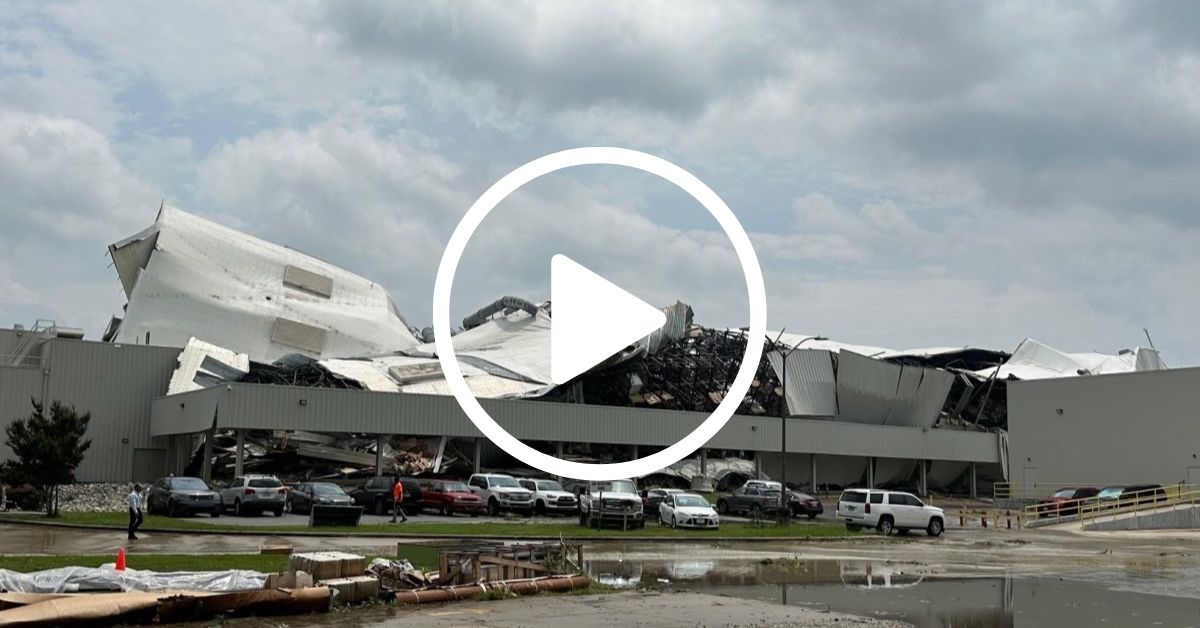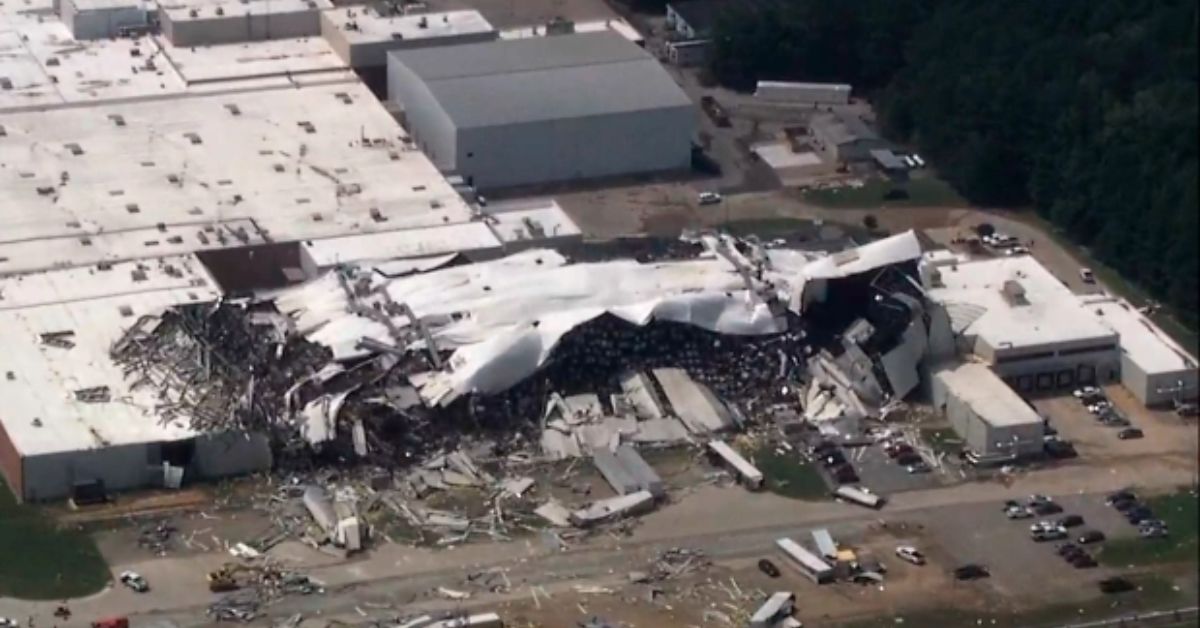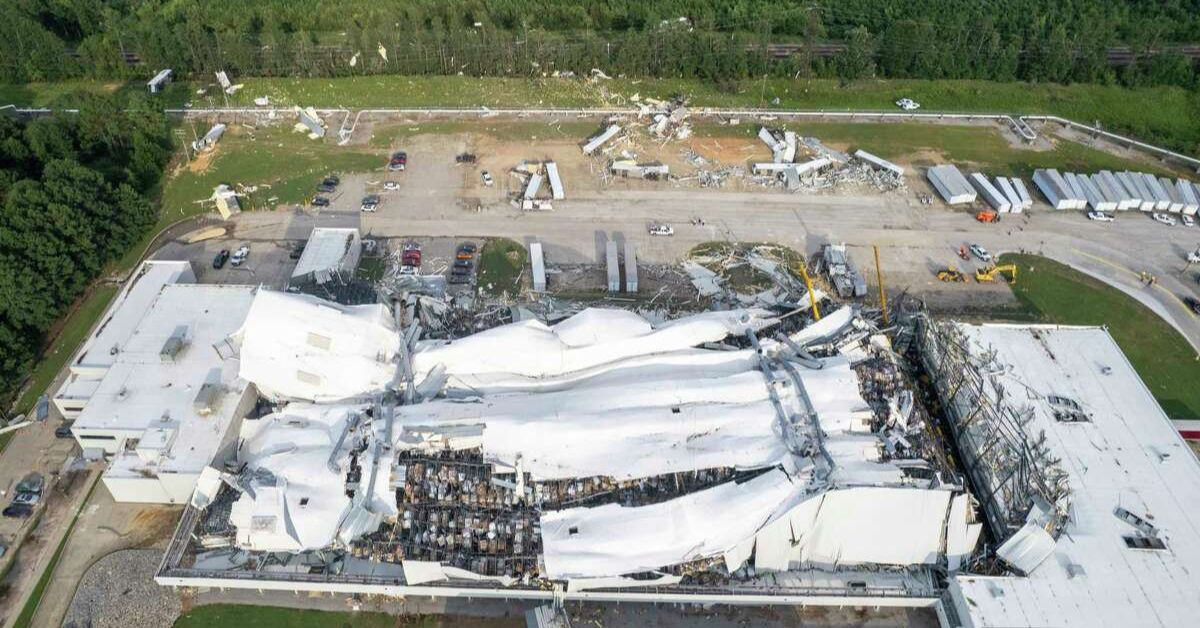A tornado that hit near Rocky Mount, North Carolina, caused significant damage to a Pfizer factory, which is responsible for producing almost 25% of Pfizer’s sterile injectable medicines used in U.S. hospitals. This situation is expected to add further strain to the already tight drug supplies at hospitals across the country. Let’s take a closer look at the possible effects of this event.
What are Sterile Injectables?
The North Carolina factory manufactures medications that are injected or administered by IV.
The plant manufactures anesthetics, anti-infective medications, and surgical pharmaceuticals. The latter are used in operations or intensive care units for patients on ventilators, according to Mike Ganio, a medication shortage researcher at the American Society of Health-System Pharmacists.
The Size of the Factory
Pfizer purchased the facility in eastern North Carolina in 2015 as part of its acquisition of the drugmaker Hospira.
There is over 1.4 million square feet of manufacturing space, which is the equivalent of over 24 football fields, as well as 22 packaging lines. According to Pfizer, around 2,000 individuals work there.
Impact on Hospital Drug Supplies
According to Erin Fox, senior pharmacy director at the University of Utah Health, there will certainly be some long-term shortages until Pfizer relocates production to other locations or rebuilds.
“If Pfizer falls out, it makes it that much harder for other companies to make up the difference,” Fox said. The specifics of which drugs might be involved in a shortage and how long that shortage will go aren’t clear.
“Anyone who is aware of this event is basically holding their collective breath at this point, hoping for the best and waiting for news,” Ganio said. He noted that drugmakers tend to ship finished products quickly from manufacturing sites, which may limit how much inventory was damaged by the twister.
How Hospitals Can Handle Shortages?
They have numerous options at their disposal to mitigate the impact on patients.
Instead than depending on regular deliveries from a wholesaler, some hospitals have begun to increase their inventory of stored medications. Ganio stated that this is especially true for drugs that hospital officials are aware will be difficult to obtain.
Hospitals may also convert to various forms of a drug, such as giving a patient an antibiotic pill instead of an IV if that patient is capable of handling it. They may order a bigger vial size of a drug if it is more easily available, and then fill many syringes with smaller doses ready for usage.
Here is some latest news:
- Breaking News: One Person Has Died in a Plane Crash at Hamilton Airport
- Shocking News: Jackson Mahomes Arrested For Aggravated Sexual Battery
Already Existing Drug Shortages
Yes, it has been going on for years. However, hospitals have recently faced shortages of chemotherapeutic treatments, pain medications, and local anesthetics.
The consequences of medicine shortages are not limited to hospitals. They also have an impact on more ordinary care provided by drugstores and doctor’s offices.
According to the University of Utah Drug Information Service, there were 309 active drug shortages in the United States at the end of June. This is an increase from 295 at the end of last year and the highest total since 2014.
Pfizer’s Response
The corporation has not stated what will happen next. On Thursday, Pfizer CEO Albert Bourla tweeted that the business was “working urgently to determine the best way to get back online as quickly as possible while ensuring the safety of our people.” You can see a tweet below:
All of us at Pfizer have spent the past 24 hours concerned about our colleagues and contractors at our Rocky Mount facility, which sustained a tremendous amount of damage yesterday when a tornado touched down in the community. I am very relieved to share that all have been… pic.twitter.com/AcJXEfcXnw
— Albert Bourla (@AlbertBourla) July 20, 2023
Pharmaceutical companies can relocate production to other locations. However, this might be hard because they must redirect raw materials, which are typically manufactured elsewhere, to other sites and may be required to train personnel to build a product.
Pfizer may also have to decide whether to reduce output of another product in order to accommodate greater manufacture at the new site.
Conclusion: The damage caused by the tornado at the Pfizer factory in North Carolina has the potential to exacerbate drug shortages in U.S. hospitals. As Pfizer assesses the damage and devises a plan to resume production, hospitals will need to find alternative strategies to manage the shortages effectively. While the situation poses challenges, stakeholders are closely monitoring developments, hoping for a swift resolution to avoid further impact on patient care.






